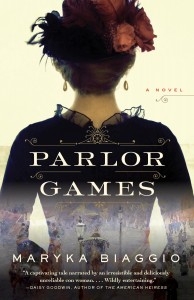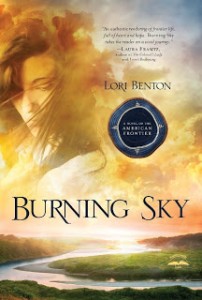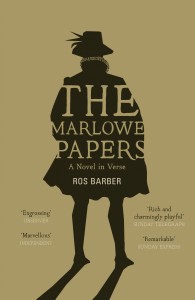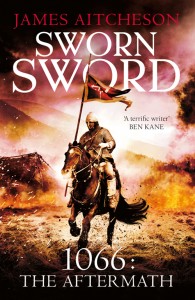New Voices: Ros Barber, Lori Benton, Maryka Biaggio & Berwick Coates
by Myfanwy Cook
Debut novelists Ros Barber, Lori Benton, Maryka Biaggio and Berwick Coates share insights about their novels and the factors that impelled them to write.
All of the debut novelists featured here share a common bond: a love of the art and magic of storytelling. This, combined with inspiration, determination and passion, has enabled them to direct a spotlight on some intriguing aspects of history.
Ros Barber’s The Marlowe Papers (John Murray/St. Martin’s Press), which is described as ‘a novel in verse’, began to take shape as follows: “When I first heard the theory that the 16th-century playwright Christopher Marlowe was the true author behind the works we know as William Shakespeare’s – that he’d faked his death in order to escape being executed for heresy, writing in exile using the Stratford broker as a ‘front’ – I simply thought ‘great story’. Marlowe is an exciting character for any novelist: a cobbler’s son who rose to the status of gentleman after completing two degrees at Cambridge University, and was recruited into the fledging intelligence services as an agent of the Queen while producing translations of bawdy Latin poems and theatrical masterpieces for the London stage.
“But what really hooked me was imagining this character placed into the psychological torment of the Marlowe-wrote-Shakespeare theory. Imagine being the author of these extraordinary works of literature, and not being able to claim credit for it! How would a person as brilliant as Marlowe come to terms with not only losing their identity, their homeland, their friends and family, but with surrendering all hope of literary recognition? The idea of living without literary recognition – and the pain of that – was easy for me to inhabit. What’s more, it seemed to be echoed in the voice of the Sonnets, which I used as the novel’s touchstone.
“The playful post-modern exploration of history appealed enormously: honouring the dots of historical evidence but joining them differently. Additionally, I could see the possibilities of weaving both the Marlowe and Shakespeare canons into the narrative: mapping the probable date of each play’s writing against the state of mind of the author and creating a coherent and plausible progression that turns the young hotshot we know as Marlowe, by degrees, into the mature Shakespeare. The story was a gift, and in many ways, continues to inspire me.”
Parlor Games (Doubleday US) by Maryka Biaggio was conceived when she “stumbled on journalist Lloyd Wendt’s report, Life of May Dugas of Menominee. The first line read: ‘She was down in our files as the most dangerous woman in the world.’” Biaggio explains: “Writing about May Dugas, the protagonist of Parlor Games, has been one great adventure. It all started when Wendt’s rollicking report (as told by his Pinkerton detective informant) convinced me I had to write about May. The story posed so many questions: How challenging was it for her to break out of the societal expectations of the Gilded Age? What motivated her? Was she a victim of powerful men or did she lure them in with blackmail in mind?
“To acquire a sense of May and her world, I did a great deal of research about the period and its customs. I visited the National Archives in Washington, DC, to view her travel records. In San Francisco, I roamed her stomping grounds at the historic Palace Hotel. I drew on my 1985 travels to China in portraying May’s sojourns to its bustling cities. A professional meeting had taken me to Mexico City in the 1990s, so I was familiar with its sights and geography. In the south of France, I paid the high fee to enter the exclusive Casino Monte Carlo, where I soaked up the ambience of the scene – the beautiful, inviting decor and the shuffling of chips – just as May likely did during her visits there.
“My primary sources of information about May were Lloyd Wendt’s report and newspaper articles of the era. Letters or diary accounts from May herself would have been helpful. But she left none. In Parlor Games I attempted to recapture a sense of the times and the day-to-day experiences of my imagined May Dugas. I chose the first-person narrative to provide readers a glimpse into the mind of what was surely one of the most adventurous women to have lived during America’s Gilded Age.”
The seeds for Lori Benton’s Burning Sky (WaterBrook Press) were sown when she “began researching the 18th-century history of what would become the United States.” Almost at once she was “drawn away from the populated seaboard settings to the sparsely settled periphery – the mountain and over-mountain frontier – where cultures inevitably collided, in friendship, trade, and war. What captured my imagination were those individuals who were drawn across those cultural barriers and not only survived the encounter, but thrived, in some cases learning to straddle that line between two worlds.
“The Mohawk Valley of New York – before, during, and after the Revolutionary War – is a setting rife with such encounters, played out against the greater conflict of what amounted to a civil war. I couldn’t resist learning more about these men and women – European, African, and Native American – who survived profound losses, made wrenching choices, and saw their families and communities fractured by violence and upheaval, leaving them to redefine their identities as nations, as neighbors, kin, and individuals.
“I began writing Burning Sky in 2009, but because I let a story germinate for months before writing, I can’t recall exactly when the character of Willa Obenchain first came to me. What I do recall is that a vision of a solitary woman on a journey, somewhere on the New York frontier, intruded upon me as I was going about my day. She was tall and strong, and she bore a carrying basket on her back. And somewhere, I was fairly certain, a collie was lurking.
“I’m a storyteller first and foremost. As such I hope readers are entertained by Willa’s story and transported to her 18th-century world to experience situations and challenges most of us (thankfully) don’t encounter in our daily lives, but that hold abiding interest nevertheless.”
Set in 1066, The Last Conquest (Simon & Schuster UK) is a testimony to both inspiration and determination, because Berwick Coates was 80 when he was offered a $130,000 book deal for his historical thriller. He commented that: “The ‘50s comedian Al Read said he had once asked a hundred men why they had got married. One half said, ‘I sometimes wonder’; the other half said, ‘It seemed such a good idea at the time.’”
“Both those explanations might be offered to explain why I wrote. Putting together a 550-page historical novel is no light matter. Quite simply, it takes a long time. The physical effort required in sitting at a keyboard may not seem crippling, but the actual business of creating (because that is what you are doing) does take it out of you a bit. If you don’t believe me, sit down and knock out a couple of thousand words yourself.
“Then there is the obvious point that, at whatever stage in the book you stop to sit back and consider, the thought is bound to cross your mind: ‘Is anybody going to read this stuff? Is anybody going to want to read this stuff?’ Or even: ‘Is it any good?’
“So there must be some pretty powerful incentives around to make sure that you start it, that you continue it, that you finish it, and that you have enough energy and self-belief left to embark on trying to sell it.
“All of which is avoiding the question: what inspired you to write it?
“I don’t think anything inspired me to do it. There was no religious conversion: you know, one day I didn’t want to write it, and the next day I did. Like Topsy, it just sort of ‘growed’. I think being nuts about history from the age of seven must have helped. Having been a schoolmaster for most of my working life, I had a good, solid general knowledge. Having spent forty years trying to make history interesting, I had an idea or two about how to make a historical novel palatable. I thought I had something to offer.
“But I would not call that a definitive answer. Like Al Read’s hundred men, I still sometimes wonder. It did seem a good idea at the time.”
From very diverse sources of inspiration, Barber, Benton, Biaggio, and Coates have all managed to uncover the starting points for their novels, which span different centuries and cultures. They have been able to tell new stories and invite us into “unknown reading territory”.
About the contributor: MYFANWY COOK is captivated by the creativity of debut novelists in unearthing settings, plots, and characters. Please do email (myfanwyc@btinternet.com) or tweet (twitter.com/MyfanwyCook) about debut novelists who have captured your imagination.
______________________________________________
Published in Historical Novels Review | Issue 66, November 2013










